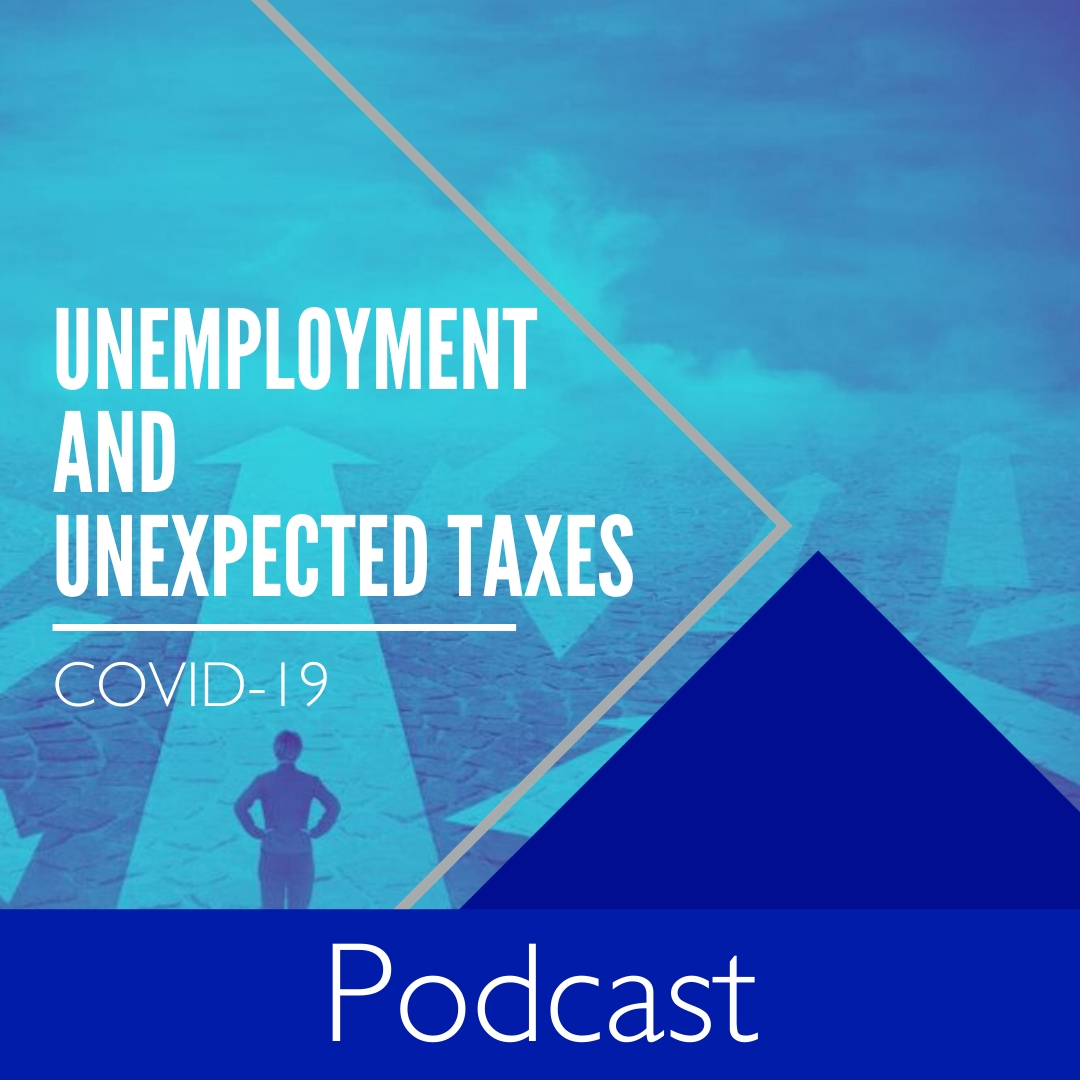As of the end of April 2020, there were 23 million Americans who are out of work and most of them are applying for unemployment. So although it’s been a slow process for most of the states to get the checks out, most states have now caught up. But I’m no expert at unemployment by any means, so today I want to talk about some of the people that are receiving benefits and things that they should look out for.
Alright, so let’s get started.
Unemployment benefits are based off of your earnings while you were working. And with the stimulus bill, they added an extra $600 per week on top of that. So like we talked about in prior weeks, there’s people that are making more on unemployment right now than they were when they were working. But I’m a little bit concerned that these people are not taking taxes into account.
So why would you be concerned about that?
Well if you think about it, when you were employed, you were getting a paycheck, and that paycheck had federal and state withholding taken off of it. So at the end of the year, you filed your taxes—yes, you had the income, but you generally had withholding to cover that tax liability, and so many people ended up getting a refund.
So it doesn’t work this way for unemployment?
It doesn’t, unless you specifically request it. So, unemployment checks are paid to the person without withholding, but it’s still income to that person. So that’s where the problem is: They have income on their return without any kind of corresponding withholding. And so what they may find at the end of the year is that they may owe taxes that they’re not expecting and they might not have the money to pay them. So planning is really important here.
So what do you suggest people do with this?
I think there’s like three things that you can probably to. The easiest is just to have withholding taken off the checks. Generally 10 percent is enough, although most states handle it differently, so check with your state to see how the state handles the withholding for their state. But for Wisconsin and Minnesota, I think you can probably withhold somewhere around 5 percent.
So what do you suggest if someone does not have taxes withheld?
So if they don’t want to have taxes withheld off there, I would still hold back 10 percent for federal and 5 percent for state and put that into a separate account, because you may just need that later on when you file your tax returns.
Like small business owners, people that are on unemployment can actually pay quarterly estimates for federal and state, and that will get those taxes paid in so they don’t owe a bunch at April 15 of next year.
And the other thing that they can do is—knowing that money is probably tight right now being on unemployment—you can always increase your withholding once you get back to work.
You know me—I’m not a big fan of surprises, so thinking about it now is really what needs to be done in order to avoid surprises later.
Does this also apply to the stimulus check that people receive? Are they going to have to pay taxes as income on the stimulus check?
That’s the nice thing. So with the stimulus checks, you actually do not have to claim that as income, so there’s no withholding or any other kind of payments required on that either $1,200, $2,400 or even more if you have kids.
So we’re just referring to the unemployment—that if you do get unemployment, you are still liable to pay income tax on that and you have to request it ahead of time.
You have to request the withholding ahead of time, that is right.
Sign Up to Receive Email Updates
Be sure you’re getting the latest insights as legislative developments occur. We’re here for you with tax insights and business resources.
Sign Up Now
We Are Here for You
Contact us to talk through the challenges your business faces as you navigate through this unprecedented time. No doubt you’ll need help assessing cash flow and making smart projections, reviewing loan covenants, lining up bridge financing, talking to banks and lenders, figuring out staff loads and employee counts, handling disrupted supply chains, and so much more.
Read An Important Message from Our Firm





